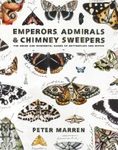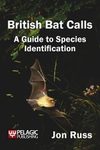"[...] His thoughtful, often philosophical approach is the result of many years of working as an ornithologist in statutory nature-conservation bodies. Arguments are balanced and I generally found myself in agreement with his position [...] Essentially, though, this pocket-sized book is a personal journey, an exploration of the importance of nature in the life of the author. By extension, he makes the case for its importance for all of us."
– James Robertson, British Wildlife 33(1), October 2021
"[...] Few of the essays draw any strong conclusions. Often, after a thoughtful weighing of the evidence, an exposure of our prejudices and past misjudgements, we are left with a dilemma or a question. The writing has the character of a one-to-one conversation – a conversation with someone both knowledgeable and wise: someone too honest to pretend to know all of the answers but whose insights are well worthy of our attention."
– Barry Gray, Ibis, May 2022
"A wise, thoughtful and very readable series of essays from someone who spent his working life at the forefront of nature conservation, and has now shared his accumulated wisdom with the rest of us."
– Stephen Moss, author and naturalist
"A highly enjoyable read – informative, thought-provoking and above all balanced. Ian Carter wears his copious knowledge extremely lightly."
– Lev Parikian, author of Into The Tangled Bank and Why Do Birds Suddenly Disappear?
"I love the warmth and refreshing candour of Ian's writing. Readable and relatable – this is an enriching book, from a reliable witness. Highly recommended."
– Conor Jameson, author and conservationist
"Ian Carter offers highly readable musings on the most pressing issues facing Britain's beleaguered wildlife. Balancing obvious expertise with refreshing honesty, Carter ponders everything from non-native species and the conflicts between gamekeepers and raptors, to the value of urban wildlife and the need to reconnect with nature. His infectious passion for the great outdoors sings from every page."
– Dan Eatherley, author of Invasive Aliens
"It has been a real pleasure for me as a country-dweller to read Ian Carter's work, because he somehow tells it like it is more than any other rural writer I know [...] Mr Carter knows the countryside [...] What he describes is not a fancied landscape cloaked with nostalgia or the ethereal pastures of the far-fetched poet, but a very real place in which birds fly and die in equal measure."
– Martin Hesp, journalist and novelist
"A deeply engaging account of our complex relationship with the natural world. Drawing on his conservation expertise and lifelong passion for wildlife, Ian explores a wide range of contentious issues and shares the joy of reconnecting with nature in this enlightening, honest and very accessible book."
– Nic Wilson, nature writer and Guardian Country Diarist
"A wonderful collection of heartfelt, insightful essays – each one like a privileged chat about the highs, lows and many conundrums of three decades working with nature, from one of its most personable and pragmatic champions. We need people like Ian."
– Dr Amy-Jane Beer, naturalist, writer and campaigner
"Human, Nature deserves to be read very widely [...] here is a book that considers all the most pressing questions we face as we attempt to understand and fundamentally change our relationship with the natural world. Most importantly, it makes the connections between them, and quietly asserts the need for us to start making more connections – between sites, whole landscapes, and each other."
– Matt Merritt, editor of Bird Watching Magazine and author of A Sky Full of Birds
"This book is a highlight of my non-fiction reading this year to date. Thought provoking, accessible and beautifully written, it is one of the best accounts I have ever read of the complex relationship between humans and wildlife, celebrating the huge benefits it can bring and full of wise comment on the dilemmas it often poses."
– Jonathan Elphick, Natural history author and editor
"A delightful read [...] Not only are the interactions with nature well told and engaging, the deeper thoughts they trigger have been honed by a lifetime's experience."
– Dr. Mark Avery
"lan is probably better known for his books on Red Kites, but here he tells the tale of his 25 years working for the government agencies for nature [and] living in a house next to a dyke on the fens [...] The book really comes alive at the end, with lan's move to Devon and his trips to Western Scotland, and I eagerly await his new book on Hen Harriers with Dan Powell."
– Bird Watching's August Book of the Month
"Touches upon some of the most important issues facing us all that need resolving before we assign nature to history and ourselves to oblivion! I bet once you pick this book up you will be tempted to put things on hold while you read the lot in one sitting!"
– Bo Beolens, Fatbirder
"If you want a slightly different perspective on our complex and complicated relationship with the natural world then this is as good a place to start as any."
– Paul Cheney, Halfman, Halfbook
"[...] an eminently readable, thoughtful, honest and fascinating contribution to modern birding literature, which I can thoroughly and unreservedly recommend."
– Mike Everett, British Birds
"It's the perfect book for dipping into and also for sitting engrossed for a couple of hours."
– Alan Williams, environmental consultant
"A thought-provoking book [...] full of short discussions emanating from Ian's vast knowledge of birds gained through his many years as an ornithologist."
– Alan Stewart, author and wildlife crime expert
"This is an interesting and balanced take on the current state of play in the UK, wildlife-wise, from an author who knows it as well as anyone else [...] a particularly engaging and fascinating read."
– Josh Jones, Bird Guides












































